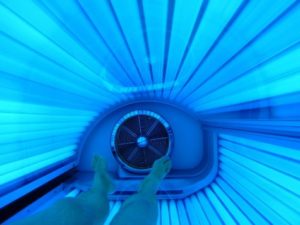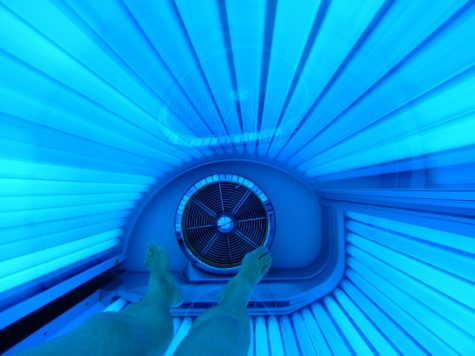NEW HAVEN, Conn. — A new study finds that men who regularly visit tanning salons are more likely to have addictive personalities and partake in poor health habits, such as smoking cigarettes and drinking alcohol frequently.
Researchers at the University of Connecticut (UConn) surveyed 636 self-reported past or present tanners, asking them about their frequency of use, preferred venue, reasons for bronzing, and general attitudes about the practice.

Overall, the researchers found stark differences between the two genders.
Namely, women tended to go to salons for the cosmetic treatment, prioritizing low cost, cleanliness, and convenience out of an establishment.
Men, on the other hand, showed a preference for less regulated establishments, such as gyms or private residences, and sought out a strong tan to enhance the appearance of their muscles.
Beyond favoring unregulated environments, male tanners demonstrated an increased tolerance for risk in their overall lifestyles, perhaps best illustrated by their higher-than-average consumption of tobacco, alcohol, and soft drinks.
Overall, a full 49 percent of men who indicated using tanning beds fit a clinical pattern of addictive behavior, the researchers noted.
“That was really surprising,” says Sherry Pagoto, the study’s lead author, in a news release. “If they tan with the same frequency as women, why would tanning in men be more addictive?”
Many of these male tanning addicts said they felt stressed when they couldn’t tan, and would spend money they didn’t have on the activity.
Although tanning bed use is already linked to the development of melanoma, it would appear that the devices may present additional risk to certain subsets of men.
Recent research has found that homosexual men are just as likely as young women to expose themselves to harmful indoor UV rays, the researchers highlight, suggesting that public health messages that solely target females may not be reaching everyone at risk.
“We’re hoping to spread the message on college campuses, since the tanning industry heavily markets to college students,” Pagoto explains of her anti-tanning advocacy efforts.
While it remains unclear as to why male tanners exercise less caution than their female counterparts, perhaps it simply comes down to men’s propensity for risk-taking behavior.
The full study was published last month in the Journal of the American Academy of Dermatology.
